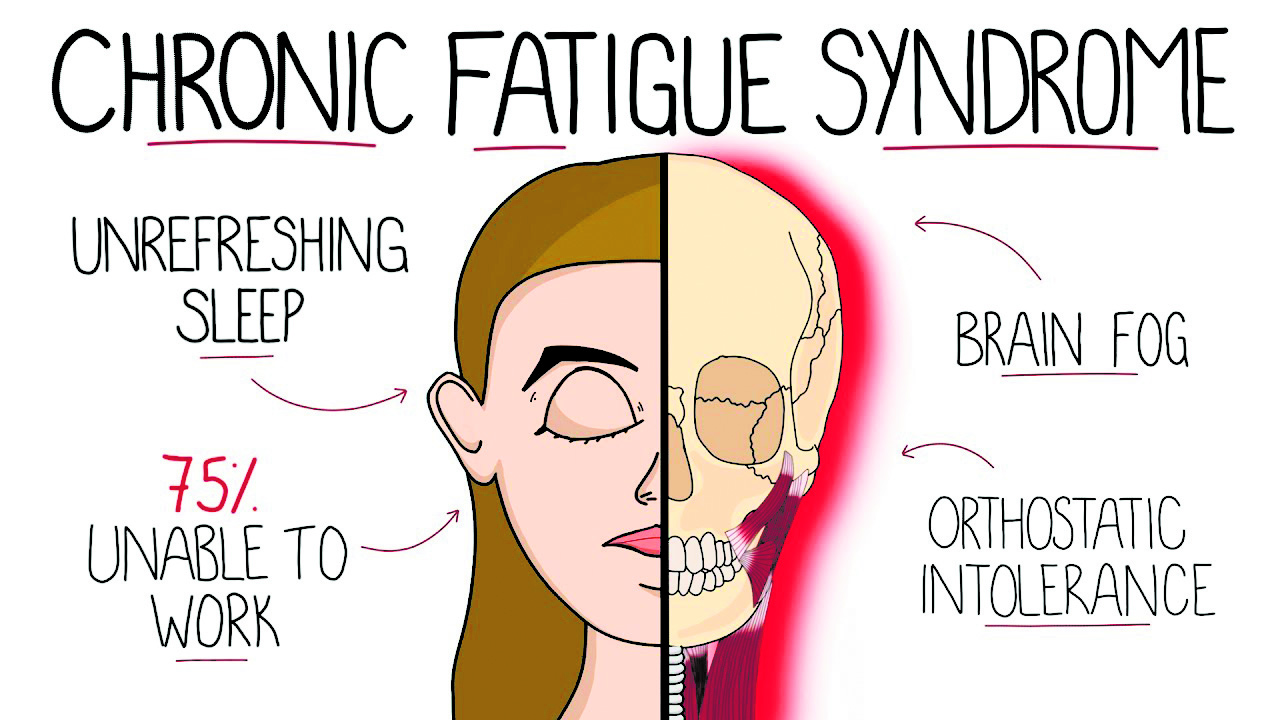
Chronic fatigue syndrome/myalgic encephalomyelitis (CFS/ME) is becoming a major public health concern around the world. According to global data, this illness affects around 1% of the population, or 17 to 24 million people.
ME/CFS is a severe, long-term condition that affects numerous body systems. While CFS was formerly a disputed diagnosis, but it is now widely accepted as a medical condition.
People suffering from ME/CFS are frequently unable to engage in their routine activities and at times may be confined to bed. ME/CFS patients have extreme fatigue and sleep disturbances. The condition may worsen when patients try or are forced to do things they need to do. This is known as post-exertional malaise (PEM). Other symptoms may include difficulty thinking and concentrating, as well as soreness and dizziness.
Though the exact causes behind CFS are still unknown. Some theories propose that the condition can be the result of a viral infection, psychological stress, or a combination of factors. With no known cause and with many other illnesses showing similar symptoms, it can be difficult to diagnose ME. Furthermore, there are no specific tests to diagnose CFS, therefore, when obtaining a diagnosis, your doctor will need to rule out other possible explanations of your chronic fatigue.
Risk factors and symptoms
CFS can affect anybody, but it is more frequent in women in their forties and fifties. Women are two to four times more likely to be diagnosed with the condition as compared to their male counterparts. Other factors that may increase your risk for CFS include allergies, genetic predisposition, stress and environmental factors.
The symptoms of ME/CFS can differ among individuals, with the intensity fluctuating from one day to another. Besides fatigue, other common symptoms include profound exhaustion following mental or physical exertion, muscle or joint discomfort, unsatisfying sleep, cognitive difficulties, and worsening dizziness upon transitioning from lying or sitting to standing.
Additional symptoms can include headaches, sore throats, and tender lymph nodes in the neck or armpits. Heightened sensitivity to light, sound, smells, as well as increased sensitivity to certain foods and medications, might also be experienced by individuals affected by this condition.
Diagnosis and treatment
Fatigue is a common symptom of several diseases. However, you need to consult your doctor if you are experiencing chronic or extreme exhaustion.
Diagnosis of CFS relies on two main criteria. Firstly, the fatigue should be severe and persistent, lasting for over 6 months, while other medical conditions have been ruled out. Secondly, the presence of four or more symptoms associated with CFS help in confirming the diagnosis.
As of now, there is no specific treatment definitively proven to effectively address CFS. While vitamin supplements and certain medications might offer some benefits, many treatments primarily aim to relieve the symptoms of CFS rather than providing a cure.
The course of treatment for chronic fatigue syndrome (CFS) is tailored based on several factors. These include your overall health and medical history, the severity of the condition, your tolerance for specific medications, procedures, or therapies, and the anticipated course of the condition.
Additionally, your opinion and preferences play a significant role in the decision-making process regarding the treatment plan. Healthcare providers consider these various factors to develop a personalized approach that best addresses your individual needs and aims to manage the symptoms associated with CFS.
Treatment may include dietary supplements and herbal preparations, Light-intensity aerobic exercise (avoid intense physical activity), psychotherapy and supportive counselling, medicine, including corticosteroids, antidepressants, and others
Living with chronic fatigue syndrome
At present, chronic fatigue syndrome lacks a definitive cure. Managing chronic fatigue can pose significant challenges. Collaborating with your healthcare provider is crucial to explore treatments that may alleviate symptoms. Counseling or participation in support groups has proven beneficial for some individuals to manage this condition.
The author is Hon. Senior Consultant (Endoscopic Gynecology) at PSRI Hospital, New Delhi.